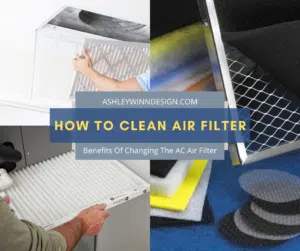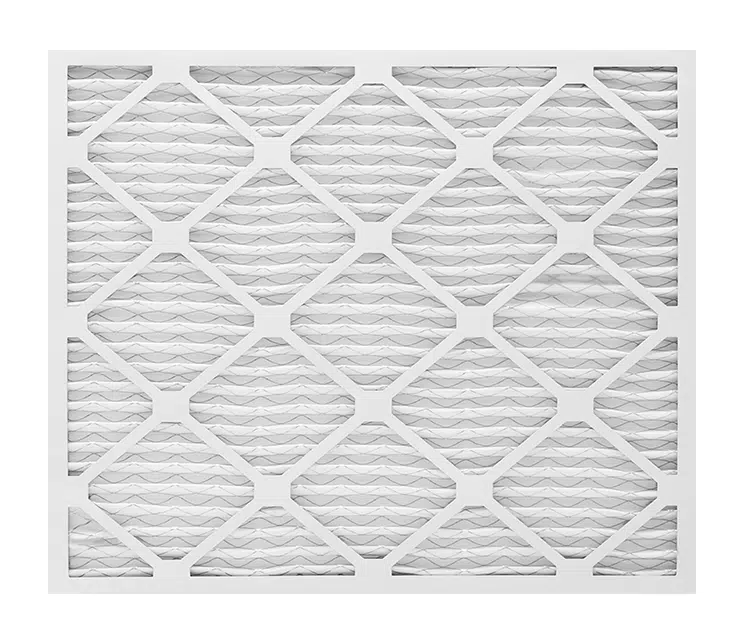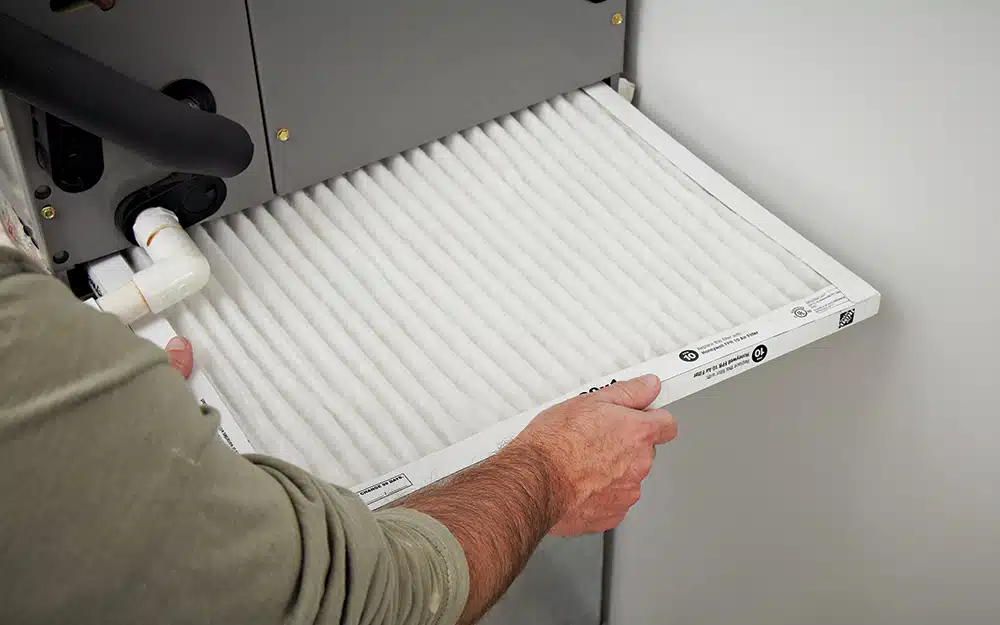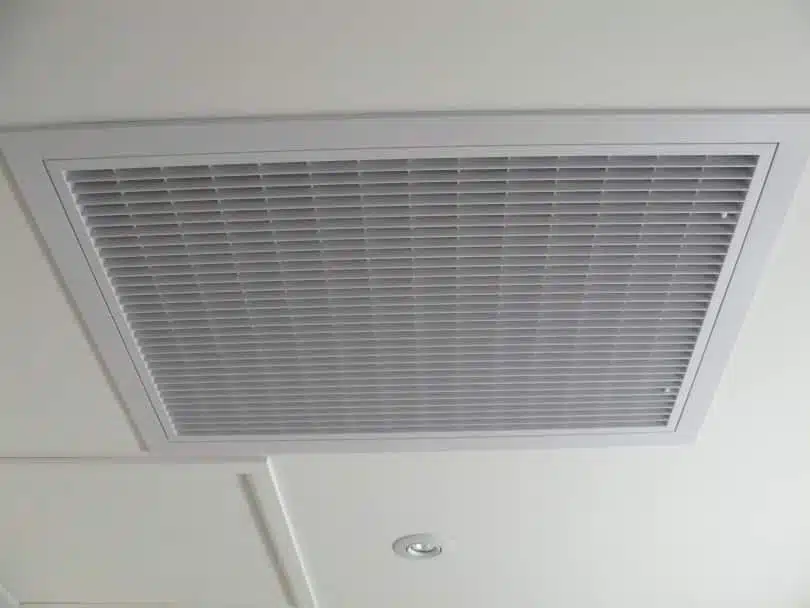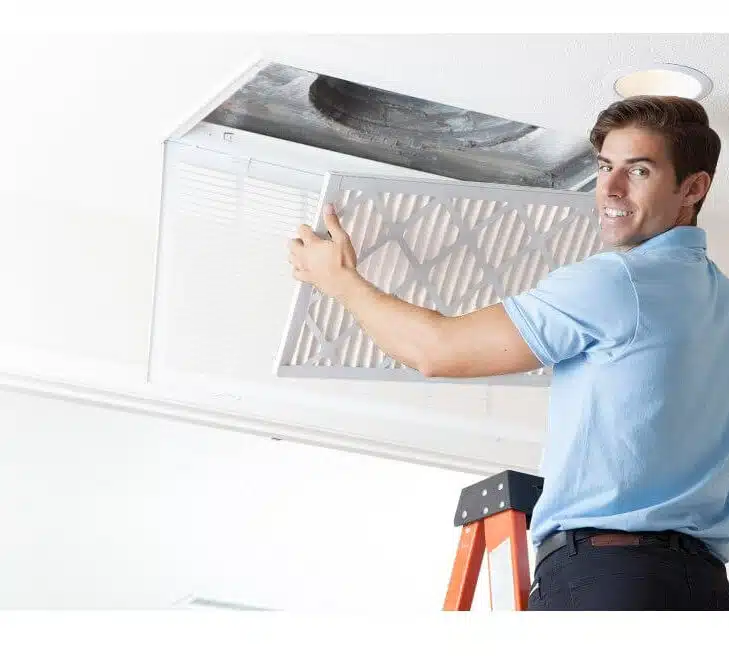How To Clean Air Filter – The placement and location of your air conditioning unit at home is something you should have no difficulty finding. This is if not the largest, definitely one of the largest pieces of equipment in your home. And although you hope the unit never breaks down or at least not in the middle of the hottest months of the year, you know that at some point it will be necessary for you to call in a professional to have a look at it.
They will inspect it and find the damages that you may not be aware of as a layman. Thus, they can help repair and replace any parts if required; visit this URL to know more.
However, knowing how and when to change the air filter in your AC unit is generally a task that you, as a homeowner, will have to perform several times a year. This way you will ensure the extended life of your HVAC unit and improve its efficiency.
What are the benefits of changing the AC air filter?
The filter in your AC unit is there for a reason. You need to know how to clean air filter It traps particles that are floating in the air and prevents them from entering your system. Besides catching particles of dust, smoke, pet dander, spores, and other debris, a clean filter has shown to be helpful in alleviating symptoms of asthma and allergy sufferers. Additionally, changing your air filter will:
Give Your AC Unit Greater Efficiency
You definitely do not want the coils of your AC unit to be clogged with such things as animal hair, dirt, dust, and other contaminants that may be present in the air of your home. If your system needs to work longer to get you the same amount of clean air, it will become less and less efficient and more expensive to operate.
Make Your AC Unit Last Longer
A motor that is strained and tends to overheat will be more likely to burn out sooner than it should. A clean air filter will increase the life of your equipment. No doubt about it, a new filter is worth every penny. It is about how to clean air filter.
How often do filters need to be replaced?
Many times, when you go have a look at your air filter, you will immediately notice that it is dirty and completely clogged. Other times you may be in doubt as to whether the time to change it has arrived or if it can wait a bit longer. If in doubt, remove it from the unit and hold it up to the light. Does it allow light to pass through? If it does, you can wait a little longer before replacing it. Otherwise, do it now.
Another way to determine the frequency is to simply follow the manufacturer’s recommendation. If it says every 2 to 3 months, set an alarm in your phone to remind you that the time is up and don’t leave the life of your AC unit to chance.
Where exactly is the air filter located in your home?
If you just moved into your new house or recently changed your AC unit, it pays to take a few minutes to find out where the air filter is located. This way, when the time comes for you to replace it, you will literally do it in less than a minute.
There are several places where air conditioner filters are typically located. If your home has a large unit, it may have more than one filter, and all of them will need to be replaced. The most common locations for AC filters in residential settings are:
- On the HVAC unit itself, close to the air handler. This looks similar to a furnace. A typical place for the handler will be in your basement or attic. When you find it, you will see that the air filter fits perfectly into a slot in the air handler unit
- On HVAC systems with a return in each room, you may find an air filter behind each of the return grills
- On vertical air handlers with the return air duct entering on the top of the air handler, the filter often slides into a slot above the HVAC unit. And when the duct enters through the bottom, the filter will have a slot above the unit
- Behind the register on the ceiling or in your wall
- Older homes tend to have their registers in the floor
If you still cannot find the air filter location or are unsure as to whether what you found is the right thing, it may be worth calling your AC specialist and getting a first-hand explanation as to its location so you can do it next time with no problem. They may even be able to explain to you over the phone where it is. Additionally, if you’re in the Austin area, you can inquire about services like dryer duct cleaning Austin to ensure that your HVAC system runs efficiently and your indoor air quality remains top-notch.
Related: Ceiling Texture Ideas
How do you know which filter will work best with your unit?
The quality of the air conditioner filters you use will have a definitive impact on how well your unit cleans the air. Based on the percentage of particles that a filter can trap, filters are given a MERV rating, which stands for Minimum Efficiency Reporting Value. The purpose of this rating is to allow you to understand how effectively your filter will trap the small particles that contaminate the air inside your home.
The MERV rating works on a scale from 1 to 20 and the higher the MERV rating a filter receives, the more particles it will trap. In short, MERV ratings help rate the holes in a filter that are there in order to catch bits of passing dirt and debris. The smaller the holes, the better it will be able to capture pollutants, and the higher its rating will be.
Most residential HVAC units are designed to operate with filters rated lower than 13, while the average system will need a filter that has a rating of between 8 and 11.
Related: How to hang a Flat screen TV
However, even an AC unit that has a MERV rated filter of 5 will do a good job when it comes to catching every day contaminants in the home such as pet dander, pollen, or regular dust particles. Each filter will also have a designation on its package instructing unit owners as to how frequently these components need to be changed.
